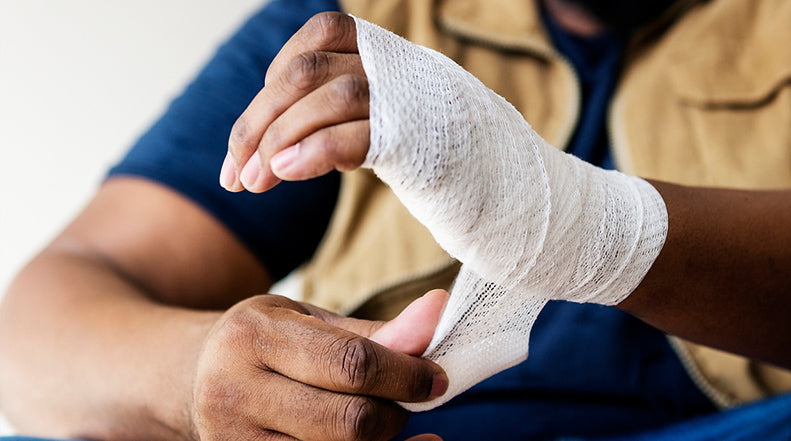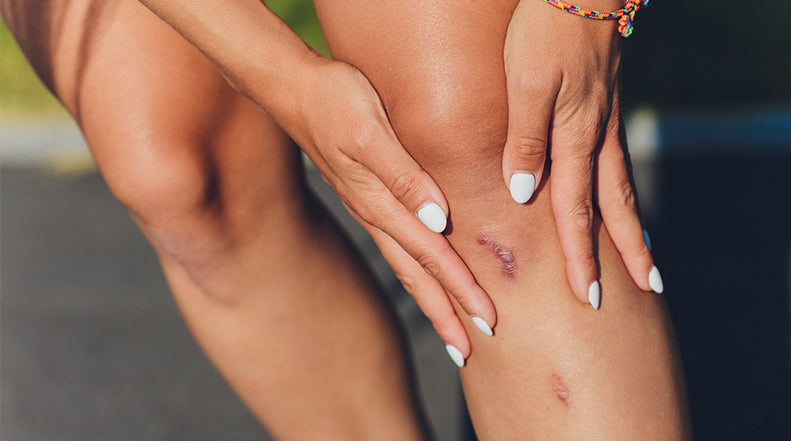Can Cold Weather Cause Aches & Pain?

You notice that your knees are starting to ache. Is there a storm brewing or is that just an old wives' tale? Can joint pain actually predict weather changes? Believe it or not there is some validity to this, because of the effects of barometric pressure changes on your body. According to Robert Newlin Jamison, PhD, a professor in the departments of psychiatry and anesthesiology at Harvard Medical School and a researcher who has studied weather's effects on chronic pain patients, "it's common for people to blame increased pain on the weather, Everyone's got an aunt who complained that her knee or ankle would flare up. Or Uncle Charlie's shoulder would give him trouble and he would say, ‘Oh, the weather's changing,'" he says. But Jamison, who is also the chief psychologist at the Pain Management Center at Brigham and Women's Hospital in Boston, has seen patients worry about being ridiculed. "For whatever reason, people with chronic pain are real shy about saying it, because they think other people think they're nuts.” In previous research published in the journal Pain, Jamison looked for an association between weather and chronic pain in four cities: San Diego, Nashville, Boston, and Worcester, a Massachusetts city with much colder temperatures than Boston, he says. Among all people interviewed about their chronic pain, "Two-thirds said they were pretty sure that weather seems to affect their pain. Most of them reported that they could actually feel the changes even before the weather changed. In other words, they could feel some increased pain the day before the storm comes."
Understanding how and why winter weather affects your pain is the first step to mitigating it. With this in mind, here’s what you need to know:
WHAT CAUSES WEATHER PAIN?
Just to make one thing clear, there's a lack of research to prove why pain increases when it’s cold. However Lauren Farrell, M.S.P.T., a physical therapist and clinic director of Professional Physical Therapy in Hoboken, NJ says experts have a few theories. “The research suggests that in colder weather, the body will conserve heat, and it will send more of the blood to the organs in the center of the body, like the heart or the lungs.” Armin Tehrany, M.D., orthopedic surgeon and founder of Manhattan Orthopedic Care, also has some ideas. He tells SELF “So when that happens, the arms, legs, shoulders, knee joints, those blood vessels will constrict,” he says. Less blood flow makes those areas colder and stiffer, which can cause discomfort and pain.
Another common theory among specialists is that “when it is cold and/or damp out, changes in barometric pressure can cause an inflammatory response in the joints,” Farrell explains. “This response could lead to increased joint pain, due to changes in circulation and possible nerve fiber sensitivity. However, there’s a lack of evidence to confirm or deny whether these responses are actually occurring in the body,” she adds. If you imagine the tissues surrounding the joints to be like a balloon, high barometric pressure that pushes against the body from the outside will keep tissues from expanding. But barometric pressure often drops before bad weather sets in. This lower air pressure pushes less against the body, allowing tissues to expand -- and those expanded tissues can put pressure on the joint.
WHAT CAN YOU DO?
Fear not, relief is possible. As the weather changes, some people with arthritis and joint pain may need to increase their pain medications. Be sure to go over this with your doctor before doing so. Other than increasing medication, there are other steps you can take for relief according to WebMD;
Stay warm: This one is a no brainer. Dressing in layers, keeping your home heated, and warming up the car before you get in can help ease pain related to cold weather, according to the National Institutes of Health. Also try sleeping under an electric blanket or warming clothes in the dryer before wearing. Try applying a heating pad to your painful joints, as heat lets muscles relax, so it's a soothing way of helping with pain.
Try to prevent swelling: While warmth helps with joint pain, it will not necessarily reduce swelling. For example, if bad weather worsens arthritis in the hands, try wearing Spandex gloves at night to keep fluid out of the joints.
Keep moving: Before you go outside during cold weather, try to exercise your painful joints to loosen up stiffness.
Improve your mood. People in chronic pain often feel anxious, depressed, and irritable but in many cases, when pain strikes the brain is able to override a lot of sensations. Learning how to improve your mood is important. Break things down into bite-size pieces. Learn how to pace yourself, and figure out how to improve your sleep. We know that distraction is really important, so have something to keep your mind occupied, and keep active.




Comments